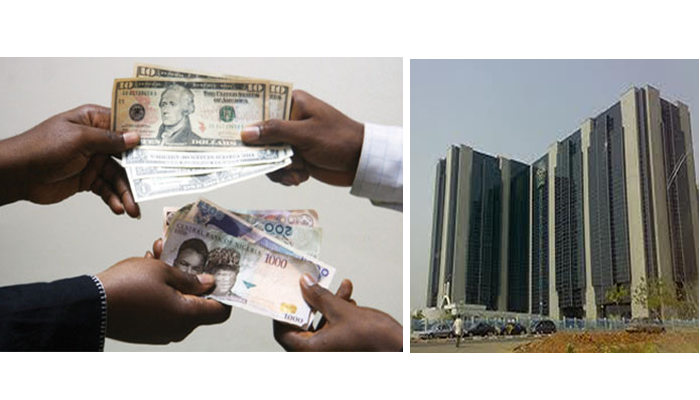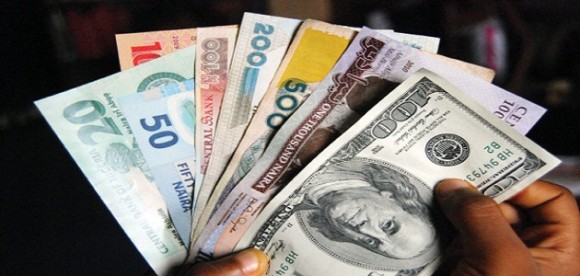The Central Bank of Nigeria recently announced a naira devaluation of 5.5% against the dollar as a way to migrate toward a single exchange-rate system.
The devaluation comes after the recent drop in oil price raised the pressure on Nigeria’s crude-dependent economy and consequently created multiple exchange rate policies for the naira.
The official exchange rate of the naira is now pegged at N381, a 21 naira increase from the N360 used during the lockdown.


Quick History
This is not the first time Nigeria’s currency has been devalued because of the drop in oil price. In November 2014, the CBN similarly devalued the naira from N155 per dollar to N168/$1 and further to N199/$1 following the falling oil prices and subsequent dwindling international reserves,
Naira Devaluation is the deliberate lowering of the value of the naira in relation to other country’s currency within the context of creating a fixed exchange rate.
Since then, Nigeria has followed the same rhythm of devaluing the naira anytime oil prices slump. However, the economy is not the only thing that suffers when naira is devalued as businesses, companies and organisations depend on foreign countries for goods, raw materials, services and investment are also significantly affected.


The recent devaluation to N381, which follows the devaluation from N307 to N360 in March will be more brutal for SMEs and startups due to COVID-19 crisis. This because they will have to pay more on transactions and loans without any significant increase in revenue.
Despite the gloomy situation of things, there are several steps these startups and businesses can take to survive this devaluation or any future ones. Here are they;
Replacing foreign partners with local ones
Over the next few months, the first thing startups will notice is the increase in operational cost especially for those whose operations are based on foreign partnerships or transactions.
There are several ways to handle this. One is reducing the foreign requirements, this can be done by substituting foreign with local partners. This will transform all operating cost to Naira thereby removing the effect of devaluation.
Another is factoring the naira devaluation into the finish price of goods. While many SMEs may do this, it probably isn’t the best decision for startups with huge competitions.
Thinking Global
For startups, a better decision would be to think global. This means thinking about expansions into other African countries with better economy and currency valuation like Kenya.
Startups offering digital services like payment gateways can especially take advantage of this as they do not need physical resources and infrastructure to operate in a foreign country.


For startups who require physical resources, a feasible option will be to partner with businesses or startups in fellow African countries that can help them handle the physical part of their business.
By doing this, startups will not only increase their market and revenue, they will be able to escape the shackles of naira devaluation. All they need to do is open a dollar account and start actively making sales and collecting payments in foreign currencies.
Leveraging Social Media
The rise of technology has essentially opened the world to startups all across the world. Unlike a decade ago, businesses can make transactions with anyone anywhere in the world with the use of technology.
Startups can leverage this benefit to expand their customer base from Nigeria to just about any country in the world. There are various social media channels like Facebook and Instagram that can help with that.
Seeking compromise with foreign investors
When situations like the sudden naira devaluation happen, a good option for startups is to have conversations with Foreign partners about the new reality.
Like the case of DSTV, where the cost of buying a licence to show Premier league and other foreign leagues became too costly due to the reduction in revenue caused by naira devaluation. A good move by DSTv will be to sit with licence regulators of the league to reach a compromise that won’t make just one party bear the added cost.


Debt funds
Apart from high operating costs another thing that could significantly cause the demise of startups is paying interest of foreign debt fund after devaluation.
A startup that raised a debt fund of $5 million (N1.8 billion) in March Will now have to pay interest on a $5 million that now translates to N1.905 billion yearly (depending on agreement)
However, there are strategic decisions that startups can make to reduce the effect of devaluation. A major one is Currency Hedging.
By hedging the dollar, a startup can protect itself against unexpected or anticipated changes in currency exchange rates. Hedging can be done by purchasing or booking different types of contracts that are designed to achieve specific goals like paying interest on debt funding.
Another is converting the funds to dollar well before you need it. So if a startup has liquid cash way above the fund to effectively run operations it is advisable to convert it to dollars.
In summary, the best way for startups to survive naira devaluation is to plan for it. Although all the measures are good options to take after a devaluation, it’s better to take them as preemptive measures rather than as cures.






